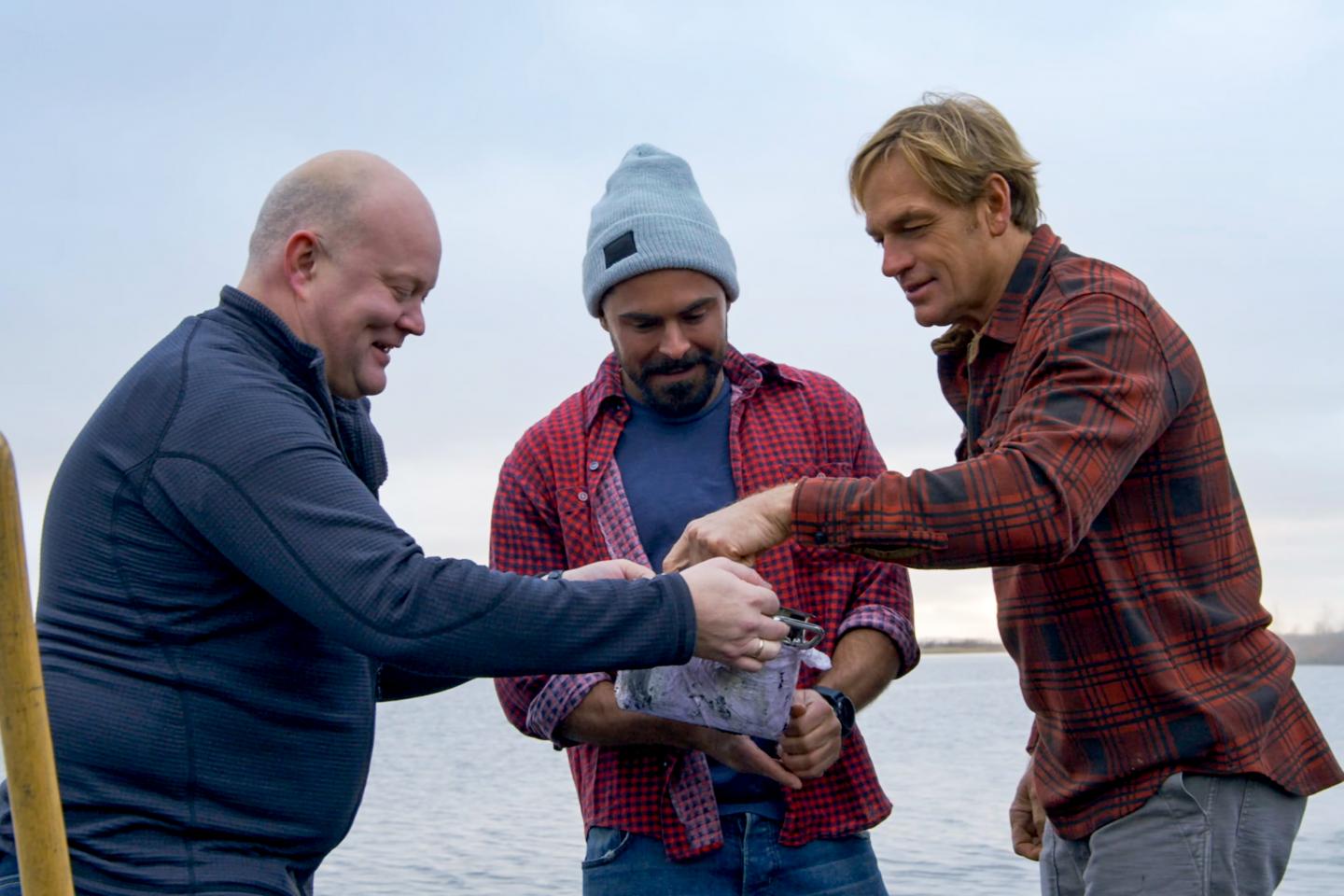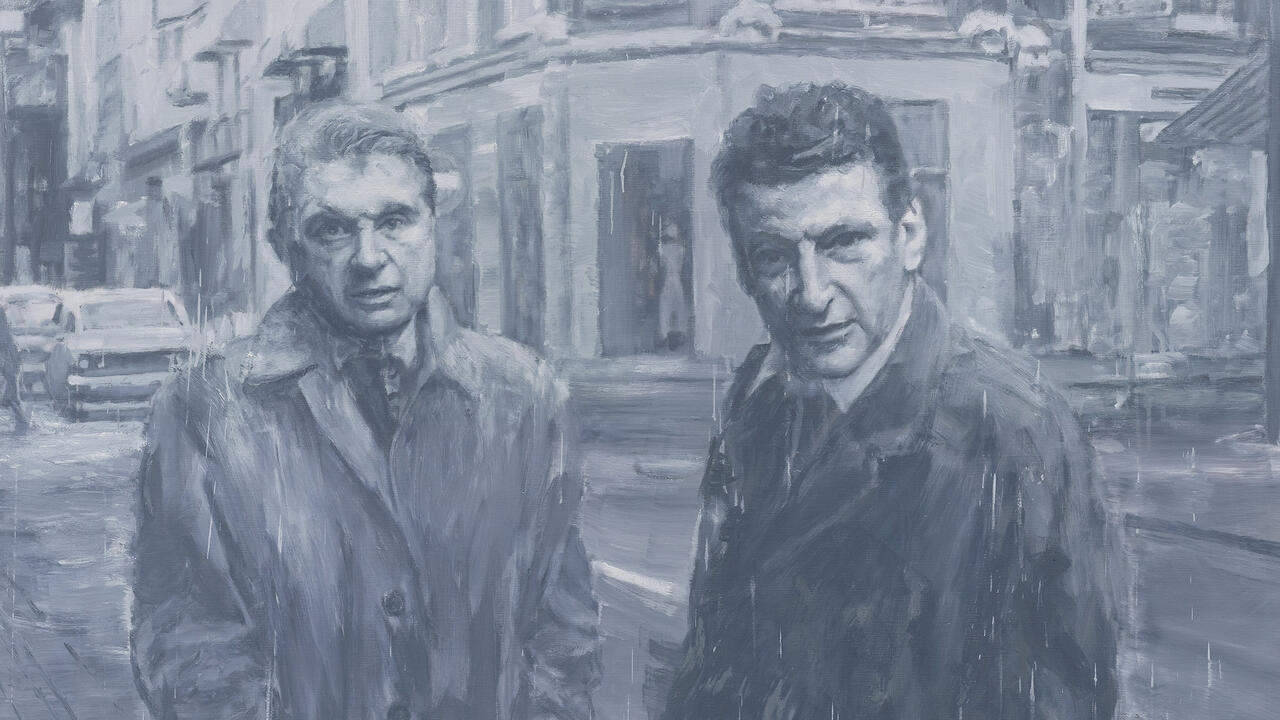Debunking the Bogus Science Behind Male ‘Wellness’
In Down to Earth with Zac Efron a better body and world are but a questionable guru and a luxury holiday away
In Down to Earth with Zac Efron a better body and world are but a questionable guru and a luxury holiday away

‘Woo! This is, like, your first kill, Zac!’ Darin Olien shouts to the Hollywood actor and wellness convert Zac Efron from a boat on the Peruvian Amazon. Olien is a buff, blonde, middle-aged man from Minnesota who calls himself a ‘superfood hunter’ and styles himself like a vegan Indiana Jones. The victim of the kill is not an animal but the vitamin-rich camu camu berry, which Efron is picking for the first time. Efron and Olien are presenting the stunningly vacuous Netflix docu-series Down to Earth with Zac Efron (2020), a show in which a better body and a better world are but a questionable guru and a luxury holiday away.
When it comes to wellness, repackaging luxury consumer habits as part of a moral and spiritual mission is par for the course. So, too, is the financial exploitation of physical and emotional insecurities. The industry is currently worth in the region of US$4 trillion and, over the past decade, the market for male products has exploded. Advertisers have long excelled at targeting identity-based markets by subjecting potential customers to psychological engineering. In the 1920s, tobacco companies realized they could double their profits by selling cigarettes to women as symbols of freedom and equality. Today, the once female-oriented beauty and diet industries have been successfully rebranded for men, tapping into status anxieties bound up in contemporary masculinity by selling the dream of becoming a he-man. Familiar skincare products are now repackaged as ‘survival sets’, low-calorie foods have become ‘warrior bars’ and trade is booming in muscle growth, hair replacement and sexual performance supplements. Olien has cashed in on the corporate caveman phooey. His meal replacement drink, Shakeology, retails at more than US$100.

Over the course of eight episodes, Olien and his celebrity disciple travel around Europe and the Americas in an attempt to discover the secrets to environmental sustainability and living a long and healthy life. During these trips, they rarely concern themselves with anything as unaesthetic as structural inequality. No mention is made of the 20 firms responsible for producing a third of the world’s carbon emissions, nor the wealth disparities that create vast differences in life expectancy. Where would be the fun – or the brand partnerships – in criticizing the economic elite? Instead, Olien and Efron do their bit for the planet by eating locally sourced produce at Michelin-starred restaurants, roleplaying as Vikings in an Icelandic spa, holding hands with white hippies in Costa Rica, visiting a water sommelier in Los Angeles and practising deep-breathing techniques on the rooftop of Lima’s Hilton Hotel – the show’s official hotel sponsor. The series also contains some blockbuster humble-bragging, including slo-mo, sun-kissed shots of Efron picking up litter on the banks of London’s River Thames in a pair of aviator shades. All of which makes the show’s title, Down to Earth, seem like an accidental satirical masterstroke.

Efron made the transition from child star to adult actor by becoming a poster boy for aspirational body goals. In preparation for filming Baywatch (2017), he reduced his body fat ratio down to just five percent in order to maximize muscle visibility. Somewhere along the way, he started to drink the wellness Kool-Aid. Olien seems happy to keep Efron’s glass topped up while capitalizing on the opportunity for self-promotion. Olien’s book, Superlife: The 5 Simple Fixes that Will Make You Healthy, Fit, and Eternally Awesome (2015), is plugged at the beginning of every episode. One of these five supposed ‘fixes’ is following an alkaline diet – a scientifically debunked theory first popularized in the early 2000s by the notorious charlatan Robert O. Young. In addition to practising medicine without a license, Young’s resume includes selling intravenous infusions of baking soda to cancer patients as a supposed ‘alkaline cure’. There are many words that might be used to describe him, but awesome is not among them.

Earth will not be saved from ecological disaster by a pair of rich Americans taking a gap year courtesy of Hilton Hotels & Resorts and gadding about on vegan safari. Yet, while Down to Earth may be an A-list example of corporate-sponsored performative activism, it does offer an unexpected glimmer of hope. Searching for the answer to longevity, the eco bros arrive in Sardinia, home to a high proportion of centenarians. While there, Efron explains that, due to punitive physical-conditioning regimes, for much of his adult life, he has rarely eaten carbs. To his amazement, the elderly residents enjoy a diet that includes bread and pasta, share food together and walk to the local bar for a glass of wine at lunch. Nobody looks like a steroidal Ken doll nor relies on an overpriced liquid ‘superfood’ diet to feel awesome. The first steps to living a long and happy life? On this evidence, cultivating friendships and communities, learning to take pleasure in food instead of buying into it as a correctional tool – and getting as far away as possible from snake-oil salesmen.
Main image: Down to Earth with Zac Efron, 2020, production still. Courtesy: Netflix














